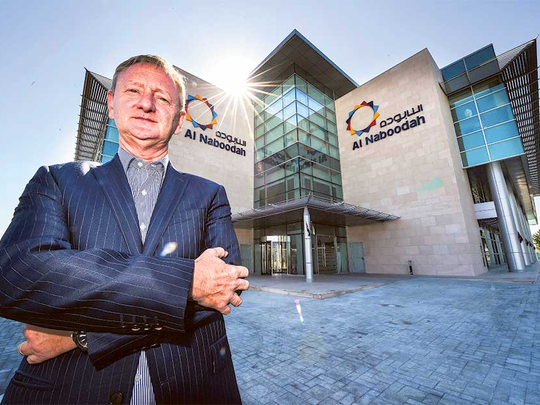
Dubai: Contractors in the UAE shouldn’t look to the new year and an Expo 2020 project ramp-up for an immediate lift in industry fortunes. Whatever gains there are will emerge in a more measured way, says a senior industry source. “At the moment, it doesn’t feel like a whole barrage of projects,” said Colin Timmons, CEO at Al Naboodah Construction Group. “There will be work other than Expo 2020.
“Tenders are coming through, (but) the process from tendering to winning takes a lot of time. Clients want to look at value engineering for the most economic solutions.”
For more than a year now, the construction sector had been waiting on an Expo 2020-induced boost to get ample funds to once again flow into the sector and ease pressure on payment delays and profitability.
But when projects start coming through at a faster clip — and they will — contractors better have the capital — in human and fund terms — to take them on. Even the slightest delay on their part could cost them dear.
As such, the competitive pressures keep piling up ... and from all directions. While Murray & Roberts has decided to call it quits on a UAE presence, UK contractors are muscling in by calling in heavy-duty support.
“Competitors are using UK trade finance for low-cost cash,” said Timmons. “They are going to local projects and saying they can build at a certain price and can part-fund it. Jobs have been won using trade finance.
“They could lend Dh300 million at 2 per cent while banks are lending at 4. That’s exactly what British competitors are doing ... and clients quite like that.
“And as UK looks at Brexit, we will see more funds becoming available to use elsewhere.”
Heading into 2017, Al Naboodah Construction Group has got the comfort of a sizeable portfolio, valued at Dh3 billion in secured projects. In recent times, it has been associated with the Expo 2020 site development, by way of “enabling, earth and concrete works which tend to be substantial”.
“We are doing JVs (joint ventures) with different contractors on a project-to-project basis and exit at the end — we do keep an open mind on these,” said Timmons. “But we are not looking for growth by acquiring businesses ... it’s not a key objective at the moment.”
But the contractor has been casting around for overseas contracts, something that it hopes to pull more of in 2017. It has tendered for some, notably in East Africa, but there are caveats involved to lessen the risk.
“There is a Dubai connection, and this way we are assured of payments,” the CEO said. “Dubai Ports is building a bonded warehouse in Tanzania, or it could be one for DP World.
“This way, (even) if Dubai and Abu Dhabi are quiet, we have the flexibility in the business. But we are not going to fly to Asia or Africa to set up offices — it will be project by project.” (The CEO added that possibilities of working in Iran have been mentioned, but are “not on the radar”. Saudi Arabia — where payment delays have been hobbling the construction sector — is certainly not as well. But Oman could be an option, as would opportunities in emirates other than Dubai and Abu Dhabi.)
Payment delays remain a live-wire issue for the industry, but Timmons says those extending up to six months has not become the norm. At least, it’s not what his company is facing.
They are more in the nature of “slight delays ... possibly because we are a large contractor,” the CEO said. “Some clients do provide advance payments to kick-start a project, because this involves considerable cash outgoings. The contractor give an advance payment bond and there’s no risk to the client. The client can cash the bond any time.
“Advance payments work in supporting contractors and most contractors desire this. When you start on a project, you may have no income for (the first) three months, which is the typical payment period.
“It doesn’t matter who the client is — our duty to shareholders is to highlight whether it (a particular project) is a risk to our business.
“We are more focused on risk, in terms of what and whom we can work with. When we analyse a project at the tender stage, you know what the risks are. One risk may be whether the client has the secured funds to pay.
“When we price a project, we will stand firm on that.”












